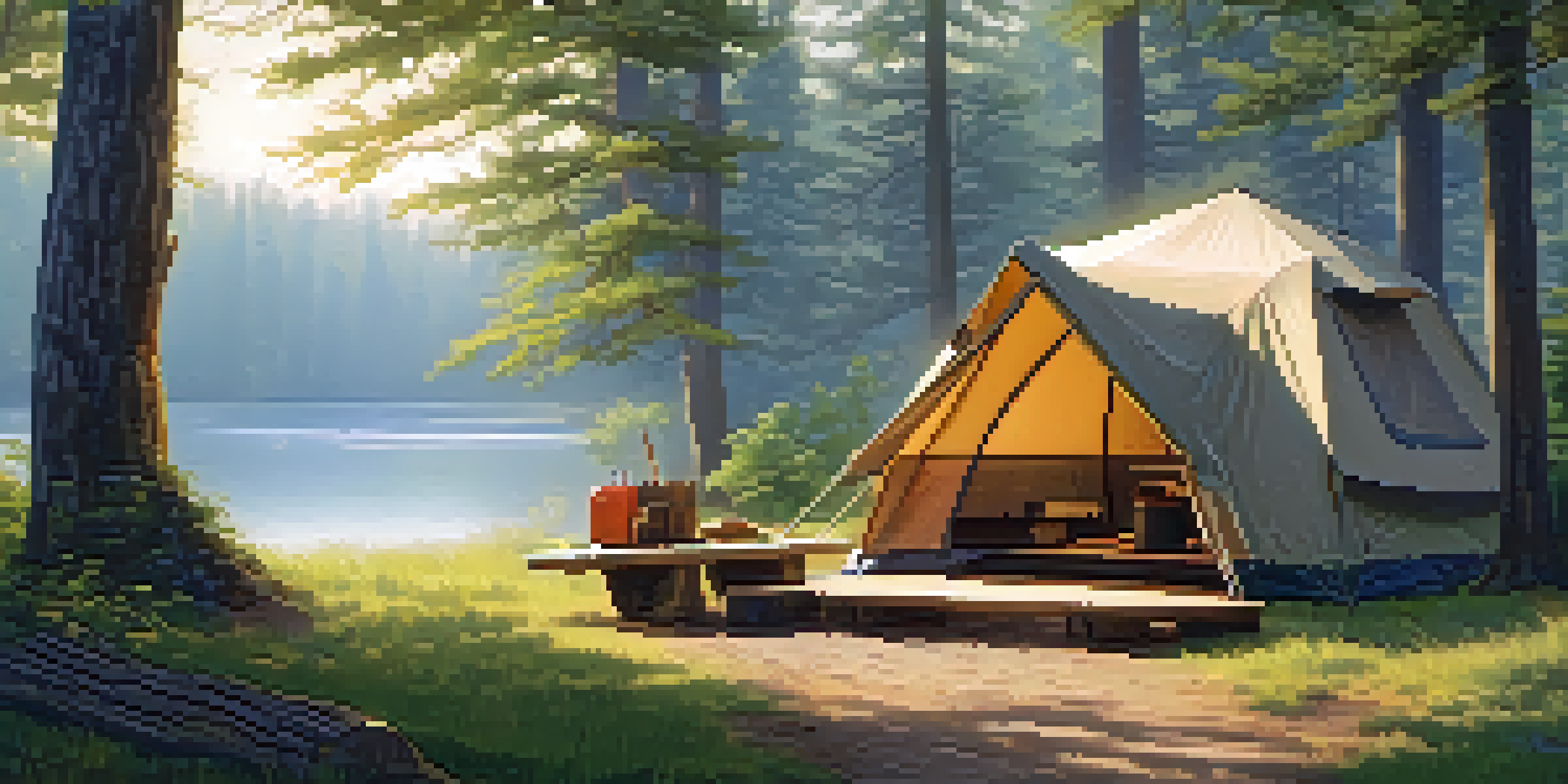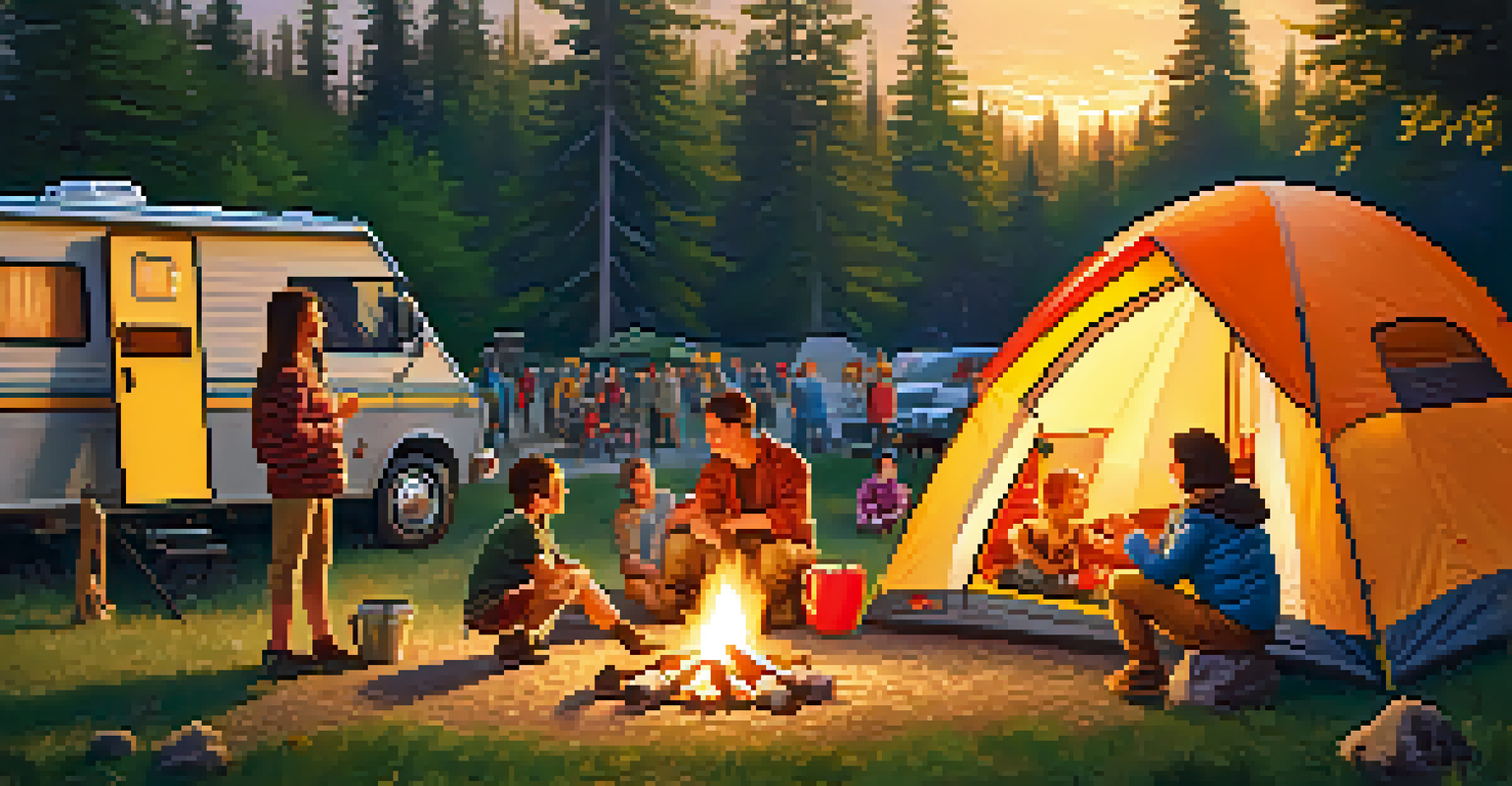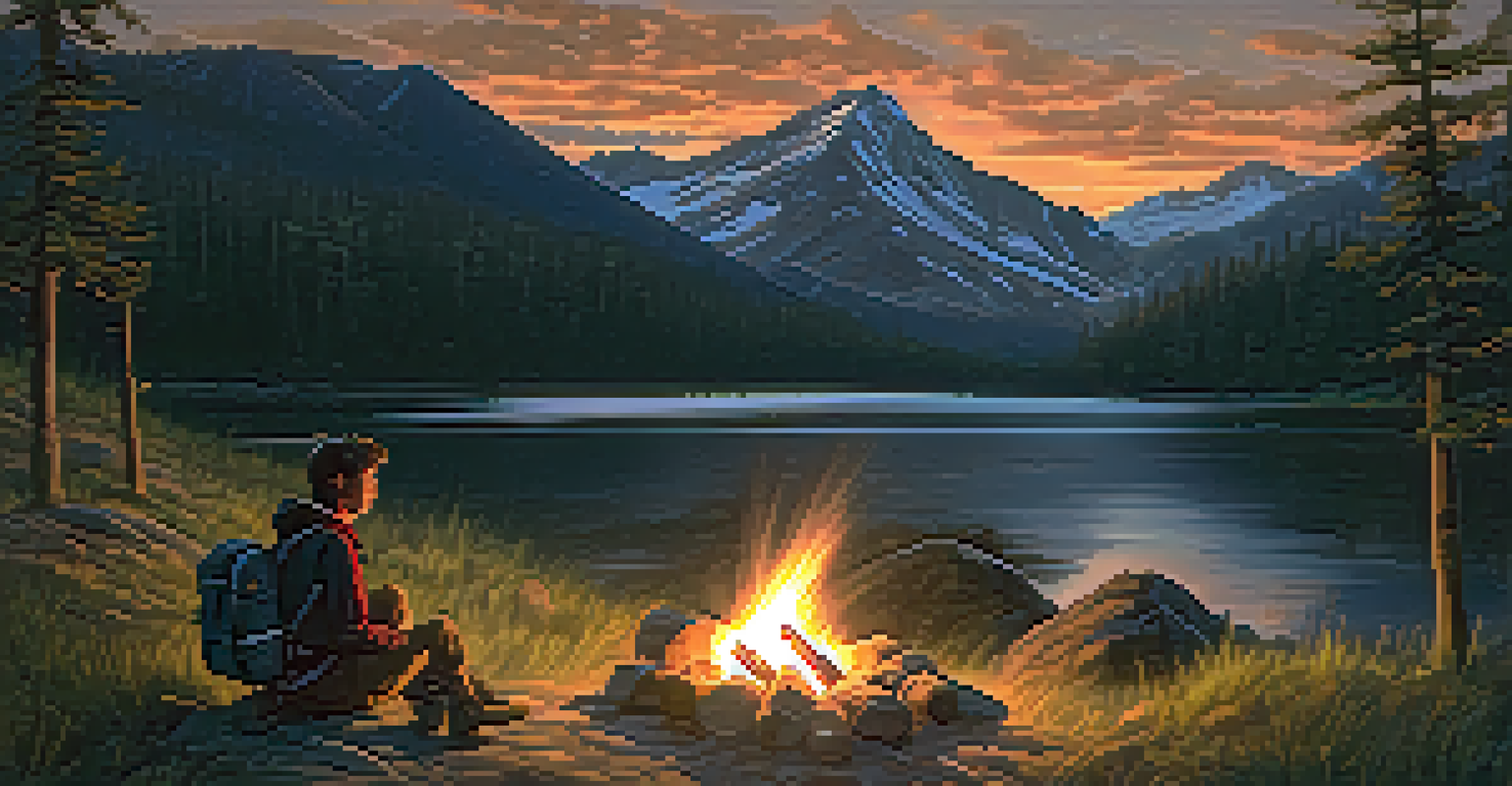The Ultimate Guide to Choosing the Right Campsite

Understanding Your Camping Style: What’s Your Vibe?
Before embarking on your camping adventure, it's crucial to understand your own style. Are you a rugged backpacker who thrives on the thrill of the wild, or do you prefer a more cozy experience, complete with amenities? Knowing what you enjoy will help narrow down your options significantly.
In every walk with nature one receives far more than he seeks.
For instance, if you love socializing and family-friendly activities, a campground with facilities like playgrounds and recreational areas might be ideal. On the other hand, if solitude and nature are your primary goals, a remote site could be more appealing. Identifying your camping vibe sets the foundation for a successful trip.
Reflecting on past experiences can also provide insights into your preferences. Think back to what you loved or disliked about previous sites, and use that to guide your search for the perfect campsite.
Researching Campsite Options: Where to Start Looking
The internet has made finding the right campsite easier than ever. Start by using camping websites and apps that list various campsites along with reviews and photos. These platforms can help you get a feel for what to expect and gauge the quality of the site.

Another great resource is social media. Many camping enthusiasts share their experiences online, providing real-life insights that brochures often miss. Don’t hesitate to ask for recommendations from friends or online communities as well, as personal experiences can guide you toward hidden gems.
Identify Your Camping Style
Understanding your camping preferences is essential for selecting the right campsite and ensuring a successful trip.
Finally, consider checking local parks or national forests for campsite options. Often, these locations offer a wealth of spots that cater to different camping styles, from primitive sites to well-maintained campgrounds.
Evaluating Amenities: What Do You Need?
When choosing a campsite, think about the amenities that matter most to you. Do you need access to restrooms and showers, or are you comfortable with a more rustic setup? Identifying these needs early on will save you from unpleasant surprises later.
The fire is the main comfort of the camp, whether in summer or winter.
For families, amenities like picnic tables, fire pits, and playgrounds can make all the difference. For solo adventurers or couples, a quieter site with fewer crowds might take precedence over facilities. Balancing comfort and nature is key to enhancing your camping experience.
Remember to check what each campground provides before booking. Some sites might have additional perks like guided hikes or equipment rentals, which can elevate your camping adventure.
Location, Location, Location: Proximity to Attractions
The campsite's location can significantly influence your overall experience. Consider how close it is to hiking trails, lakes, or other natural attractions you want to explore. A site nestled near your desired activities can save you travel time and enhance your adventure.
If you're planning to engage in specific activities like fishing, kayaking, or rock climbing, ensure the campsite is conveniently located near those spots. A well-placed campsite can transform your trip from average to extraordinary by providing easy access to the great outdoors.
Research Campsites Thoroughly
Utilizing online resources, social media, and local parks can help you discover the best campsite options that suit your needs.
Additionally, think about how far you’re willing to travel to reach your campsite. A balance between accessibility and remoteness can provide the best of both worlds—an adventure without the stress of long drives.
Checking Weather Conditions: Be Prepared
One of the most critical aspects of camping is preparing for weather conditions. Research the typical weather patterns for the time of year you plan to camp, as conditions can vary dramatically. This knowledge helps you pack appropriately and set realistic expectations.
For instance, summer camping may require lightweight clothing and sun protection, while winter trips call for warmer gear and possibly special equipment like snowshoes. Always check the weather forecast leading up to your trip to stay informed about any changes.
Planning for the unexpected is also wise. Bring along a backup plan, such as alternative activities or extra supplies, to ensure your camping trip remains enjoyable, no matter what Mother Nature has in store.
Safety First: Understanding Risks and Regulations
When choosing a campsite, safety should be top of mind. Familiarize yourself with the area's wildlife, potential hazards, and regulations. Knowing how to handle encounters with animals or what to do in case of inclement weather can keep you and your fellow campers safe.
Additionally, it's essential to be aware of local regulations, such as fire restrictions or camping permits. These rules are in place to protect the environment and ensure a positive experience for all visitors. Ignoring them could lead to fines or unsafe conditions.
Plan for Safety and Comfort
Being prepared for weather conditions, safety regulations, and essential amenities is crucial for an enjoyable camping experience.
Before heading out, take some time to educate yourself about the specific risks associated with your chosen location. A little preparation can go a long way in keeping your camping adventure safe and enjoyable.
Making Reservations: Planning Ahead
Once you've narrowed down your options, it's time to make reservations. Many popular campsites fill up quickly, especially during peak seasons, so booking in advance is crucial. This ensures you secure your spot and avoid last-minute scrambling.
Different campsites have varying reservation policies, so be sure to read the fine print. Some may require deposits or have specific cancellation policies, which is essential to know in case your plans change.

Don’t forget to confirm your reservation a few days before your trip. This simple step can save you from potential headaches upon arrival, ensuring your camping experience starts off on the right foot.
Packing Wisely: Essentials for a Successful Trip
Now that you've chosen your campsite, it’s time to pack! Make a checklist of essentials based on the amenities available and your planned activities. Common items include a tent, sleeping bags, cooking gear, and food, but don’t overlook the importance of personal comfort items.
Consider the weather and specific activities you’ll be doing. If you’re hiking, pack appropriate clothing and sturdy footwear. If you're planning a campfire, include firewood and s'mores ingredients! Thoughtful packing can enhance your camping experience and keep you comfortable.
Lastly, don't forget to pack a little bit of fun! Games, books, or musical instruments can make for delightful evenings under the stars, adding to the memories you’ll create during your time outdoors.